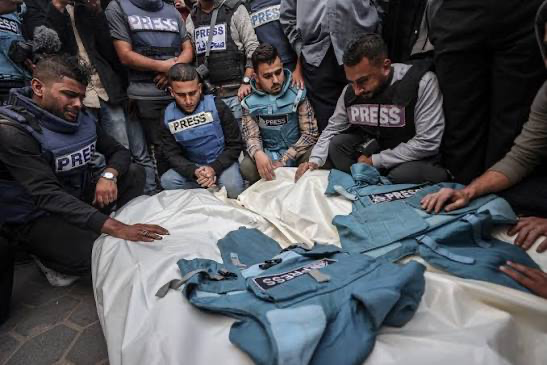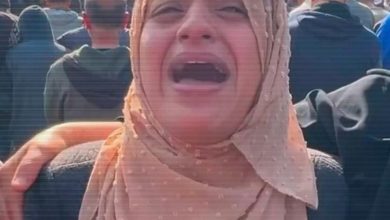Israel’s Top Court Postpones Petition Demanding Media Access to Gaza After Two-Year Genocide: What You Need to Know

Occupied Palestine (QNN)- Israel’s Supreme Court has postponed the hearing of a petition demanding independent access for journalists to Gaza, after two years of genocide during which Israel has prevented foreign journalists from entering the Palestinian enclave.
Since the Gaza genocide began in October 2023, Israel have prevented foreign journalists from entering the devastated territory.
On Thursday, Israel’s top court began the hearing of a petition filed by the Foreign Press Association (FPA) seeking access to Gaza. The petition represented international media outlets in Israel and the occupied Palestinian territory.
The State Attorney acknowledged “the situation has changed” and requested a further 30 days to examine the circumstances. No date has been set for the next hearing.
Speaking outside the courtroom ahead of the hearing, Nicolas Rouget, an FPA board member said: “We have a right to inform the public, the people of the world, the Israeli public, the Palestinian population.”
“We feel we must stand … by our Palestinian colleagues in Gaza, who have been the only ones able to inform the public about this conflict over the last two years,” he added.
No Media Access to Gaza
Israel has barred international reporters from entering and reporting in Gaza. “I have no doubt that the prevention of international access, the killings of journalists, the targeting of media facilities, the punishment of [Israeli] outlets like Haaretz is part of a deliberate strategy on the part of Israel to conceal what is happening inside Gaza,” said Committee to Protect Journalists (CPJ) chief executive, Jodie Ginsberg.
Dozens of countries, human rights groups, and some of the world’s largest news outlets have repeatedly demanded that Israel allow international journalists to enter the enclave during the two-year genocide.
Israel’s continued prevention of international journalists from entering Gaza appears to be motivated less by concerns for their safety and more by a desire to avoid proper “scrutiny and accountability regarding the “desperate situation” in the enclave, Jonathan Levy, Executive Editor and Managing Director of Sky News UK, wrote in June.
For the course of its longest war, no reporters have been permitted entry to Gaza other than on “organised and controlled ’embeds’ of a few hours alongside Israeli soldiers,” he added.
Israeli officials claimed that the safety of reporters could not be ensured. However, journalists from leading outlets said they have operated in Gaza in previous wars.
They also highlighted the Palestinian journalists reporting from Gaza, and the heavy price they paid for their work.
According to Gaza’s Government Media Office in October, at least 255 Palestinian journalists have been killed in Israeli attacks since the start of the Israeli offensive.
The head of the Palestinian Journalists Syndicate said the Gaza Strip is “witnessing the largest massacre of journalists in history.”
Reporters Without Borders said Palestine has become the world’s most dangerous state for journalists.
“Trapped in the enclave, journalists in Gaza have no shelter and lack everything, including food and water,” said the Paris-based group, which is also known by its French acronym RSF.
Israel’s assault on Gaza has been the “worst ever conflict” for journalists, according to a report by the Watson Institute for International and Public Affairs.
The report, titled News Graveyards: How Dangers to War Reporters Endanger the World, said the Israeli assault on the Gaza Strip had “killed more journalists than the US Civil War, World Wars I and II, the Korean War, the Vietnam War (including the conflicts in Cambodia and Laos), the wars in Yugoslavia in the 1990s and 2000s, and the post-9/11 war in Afghanistan, combined”.
“Most reporters harmed or killed, as is the case in Gaza, are local journalists.”
The Center for Protecting Palestinian Journalists (PJPS) said that the killing of journalists is part of a series of human rights violations committed by the Israeli occupation.
Ginsberg from CPJ noted that the war in Gaza is “unprecedented in its impact on journalists and demonstrates a major deterioration in global norms on protecting journalists in conflict zones, but it is far from the only place journalists are in danger.”
The CPJ also accused Israel of attempting to stifle investigations into the killings, shift blame onto journalists for their own deaths, and ignoring its duty to hold its own military personnel accountable for the killings of so many media workers.
Gaza’s Government Media Office said Israel’s ban on the entry of foreign press for the third consecutive year is a “blatant violation of freedom of opinion and expression, and an infringement on the global public’s right to know.”
“It stands as further proof that this entity is anything but democratic. This conduct also serves as yet another indictment of the occupation, which demonstrates every day its fear of the truth and its determination to silence those who bear witness — the journalists — and to blind the eyes of the media.”




